Accredited Montessori Schools Near Me: Start Your Search Here
Are you searching for accredited Montessori schools near me? Discover a world where your child’s natural curiosity is celebrated and their unique potential is unlocked. Montessori education offers a transformative, child-centered approach that nurtures the mind, body, and spirit of every student and fosters a lifelong love for learning.
In this guide, we’ll explore the key principles and benefits of Montessori education, explain the importance of accreditation, and provide practical tips to help you find the perfect accredited Montessori school in your area. Embark on an exciting adventure and discover how Montessori education can set your child on the path to success.
Understanding Montessori Education
Before we explore how to find accredited Montessori schools near you, let’s take a moment to understand what Montessori education is and why it’s so valuable for children.
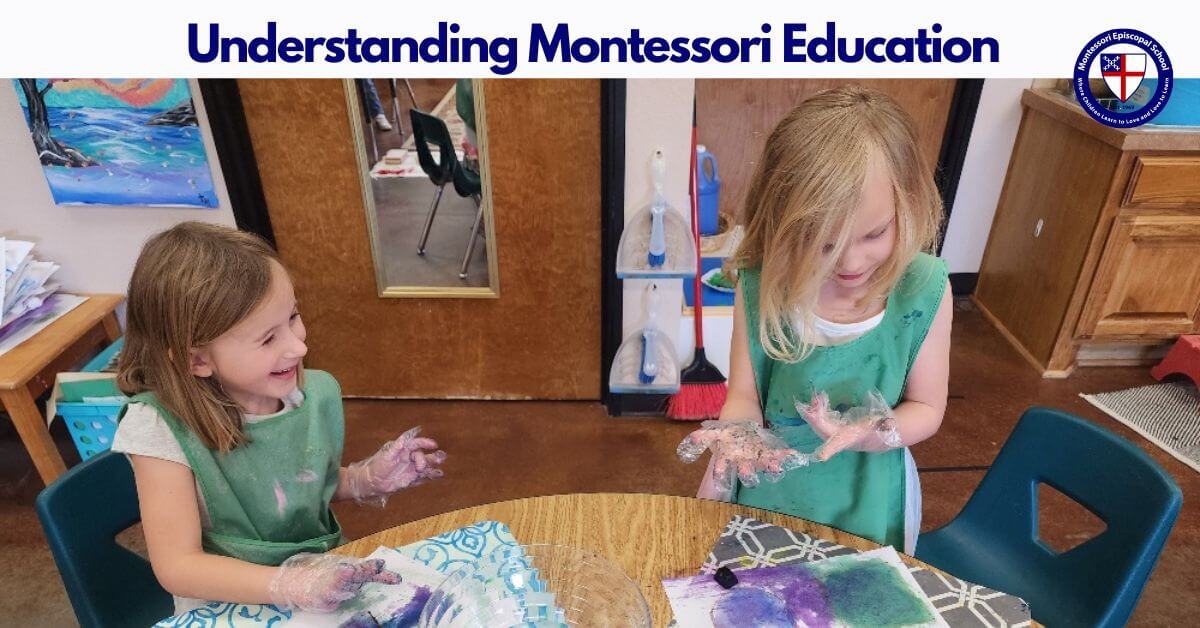
The Montessori Philosophy
Montessori education is based on the philosophy and methods developed by Dr. Maria Montessori, an Italian physician and educator, in the early 20th century. Dr. Montessori believed that children have an innate desire to learn and that they thrive in an environment that supports their natural curiosity and love for exploration.
The Montessori education approach is centered on the idea that children can self-directed learning when provided with the right environment and tools. Montessori classrooms are carefully prepared to foster independence, creativity, and a sense of order, allowing children to learn at their own pace and follow their individual interests.
Key Principles of Montessori Education
Child-centered learning
Montessori education places the child at the center of the learning process. Teachers act as guides and facilitators, encouraging children to take an active role in their own education.
Hands-on experiences
Montessori classrooms are filled with specially designed materials that encourage hands-on learning and exploration. Children learn through direct interaction with their environment, developing a deep understanding of abstract concepts through concrete experiences.
Mixed-age classrooms
Montessori classrooms typically feature mixed-age groups, with children of different ages learning and working together. This approach fosters social skills, empathy, and a sense of community, as older children serve as role models and mentors for their younger peers.
Prepared learning environment
Montessori classrooms are carefully prepared to meet the developmental needs of children. The environment is designed to be aesthetically pleasing, orderly, and accessible, with materials and activities that promote independence and self-directed learning.
The Benefits of Montessori Education
Now that we’ve explored the key principles of Montessori education, let’s examine the numerous benefits this approach offers children.
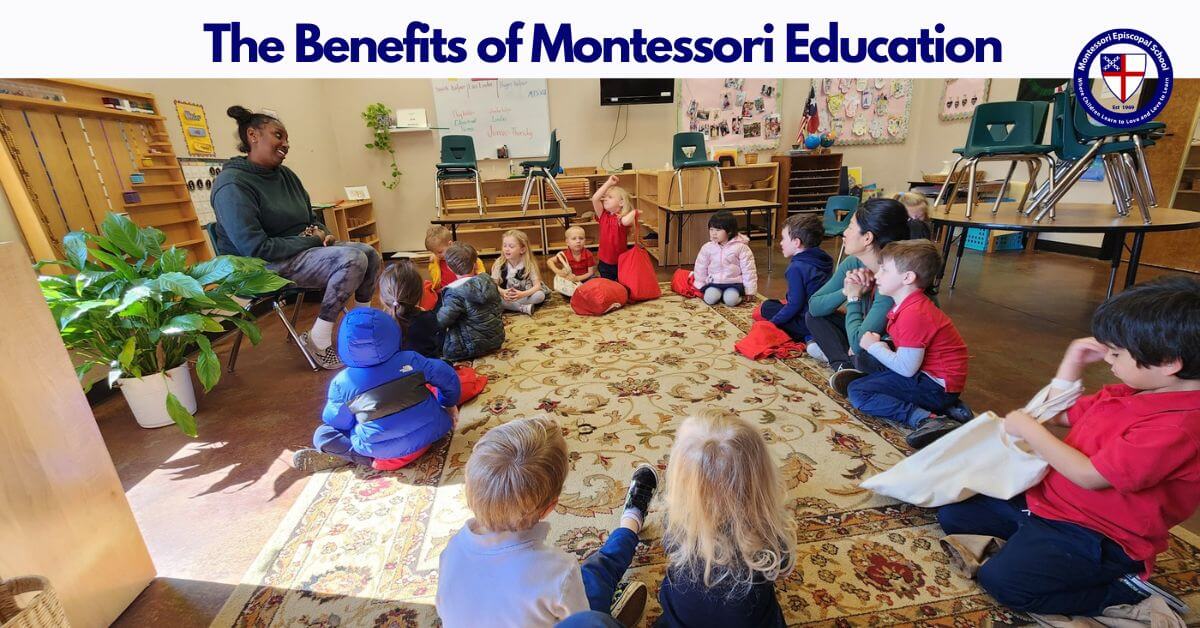
Fostering Independence and Self-Confidence
Montessori education has a main goal: helping children develop a strong sense of independence and self-confidence. Montessori schools provide a prepared environment and allow children to make choices about their learning. This encourages children to take charge of their education and develop a sense of autonomy.
In a Montessori classroom, children can move around freely and choose activities that interest them. Teachers give children time and space to explore, experiment, and make mistakes. This approach helps children learn valuable lessons about not giving up and solving problems. It also helps children develop a deep sense of self-confidence, and they start to believe in their own abilities.
Nurturing Creativity and Curiosity
Montessori education aims to nurture children’s natural creativity and curiosity. Montessori schools provide a rich and exciting learning environment. This encourages children to explore their interests and engage in hands-on learning experiences.
In a Montessori classroom, children have access to many different materials and activities. These materials and activities spark their imagination and encourage them to think in new ways. Teachers encourage children to ask questions, find answers, and develop their own unique ideas about the world around them.
This focus on creativity and curiosity helps children in several ways. They develop a love for learning that lasts a lifetime and gain a sense of wonder about the world. This prepares them to be critical thinkers, problem solvers, and innovators in a constantly changing world.
Developing Social Skills and Empathy
Montessori education focuses heavily on social and emotional growth. Montessori schools create supportive and inclusive classroom communities, which helps children develop important social skills and empathy for others.
In a Montessori classroom, children learn to work together, share, and communicate well with their classmates. Teachers encourage children to respect each other’s differences and appreciate the unique things that everyone brings to the group.
This focus on social and emotional development helps children in many ways. They build strong relationships and feel like they belong, and they learn skills that will help them succeed in their personal and professional lives.
The Importance of Accreditation
When searching for a Montessori school for your child, it’s crucial to look for accreditation. Accredited Montessori schools have met rigorous standards set by recognized Montessori organizations, ensuring that they provide high-quality education and adhere to authentic Montessori principles.

What is Accreditation?
Accreditation is a process by which Montessori schools are evaluated and recognized for meeting established standards of excellence in education. Accreditation organizations, such as the American Montessori Society (AMS) and the International Montessori Council (IMC), set rigorous criteria that schools must meet to earn accreditation status.
These standards cover a wide range of areas, including curriculum, teaching methods, classroom environment, teacher training, and administrative practices. By achieving accreditation, a Montessori school demonstrates its commitment to providing a high-quality, authentic Montessori education.
Why Choose an Accredited Montessori School?
Choosing an accredited Montessori school offers numerous benefits for both children and parents. Here are just a few reasons why accreditation matters:
Quality assurance
Accredited Montessori schools have undergone a rigorous evaluation process to ensure that they meet the highest standards of Montessori education. When you choose an accredited school, you can be confident that your child is receiving a high-quality education that adheres to authentic Montessori principles.
Experienced and well-trained teachers
Accredited Montessori schools employ teachers who have received extensive training in Montessori methods and philosophy. These teachers are highly skilled in creating a prepared environment, guiding children’s learning, and supporting their individual needs and interests.
Commitment to continuous improvement
Accredited Montessori schools are committed to ongoing self-evaluation and continuous improvement. They regularly assess their programs and practices to ensure that they are meeting the needs of their students and adhering to the highest standards of Montessori education.
Recognition and credibility
Accreditation is a widely recognized mark of excellence in the Montessori community. When you choose an accredited school, you can be confident that your child is attending a school that is respected and trusted by educators, parents, and the wider community.
How to Find Accredited Montessori Schools Near Me
Now that you understand the importance of accreditation let’s explore some practical steps you can take to find Montessori-accredited schools near you in your locality.
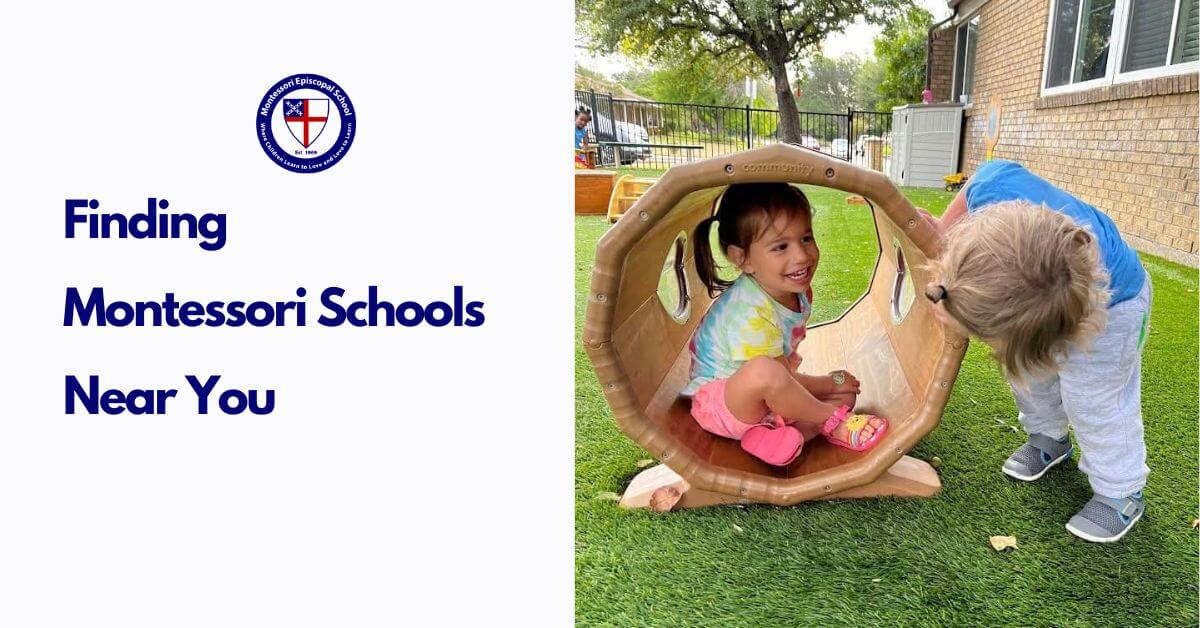
Step 1: Learn about Montessori accreditation organizations
Start your search by learning about the main Montessori accreditation organizations, like the American Montessori Society (AMS) and the International Montessori Council (IMC). These organizations have lists of accredited schools on their websites. These lists can help you in your search.
Step 2: Use online search tools
You can also use online search tools to find Montessori schools near you. Websites like Niche, GreatSchools, and Private School Review let you search for schools by location, grade level, and other factors.
When you use these search tools, make sure to filter your results. Only show accredited Montessori schools. This will help you narrow down your options. It will also ensure that you’re looking at schools that meet the highest standards of Montessori education.
Step 3: Ask for recommendations
Remember word-of-mouth recommendations when searching for a Montessori school. Talk to friends, family members, and colleagues who know about Montessori education and ask if they have any recommendations for schools in your area.
You can also contact local Montessori organizations, such as societies or parent groups, and ask for their advice and recommendations. These organizations often have strong connections to the Montessori community and can provide valuable insights into the schools in your area.
Step 4: Visit schools
Once you’ve found a few potential schools, schedule visits to each one. During your visit, observe the classroom environment, interact with teachers and students, and ask questions about the school’s philosophy, curriculum, and accreditation status.
Pay attention to the classroom’s setup, the types of materials and activities available, and the overall feel of the school. A good Montessori school should have a calm, organized, and welcoming environment. It should encourage exploration and self-directed learning.
Step 5: Evaluate and decide
After visiting several schools, take some time to think about your options. Then, make a decision. Think about factors such as the school’s accreditation status, the experience and qualifications of the teachers, the quality of the classroom environment, and how well the school fits your child’s needs and learning style.
Remember, choosing a Montessori school is a personal decision. It requires careful thought and research. Take the time to find an accredited school that matches your values and educational goals. This will ensure that your child receives the high-quality education they deserve.
Montessori Episcopal School: Blending Tradition and Innovation
A Unique Christian Montessori Experience
If you’re searching for an accredited Montessori school near you in Denton County, look no further than Montessori Episcopal School (MES). As the only Christian Montessori school in the area, MES has been serving families in Lewisville, Flower Mound, and Highland Village for over 50 years, providing an exceptional early childhood education experience for toddlers through kindergarteners.
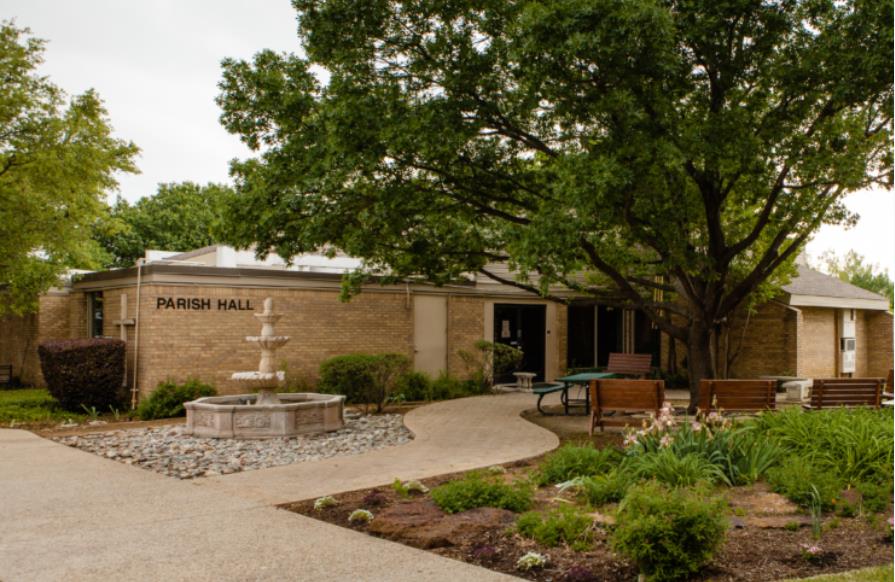
Seamlessly Integrated Montessori Philosophy and Episcopal Traditions
At MES, the Montessori philosophy is seamlessly blended with the traditions of the Episcopal Church, creating a unique and nurturing learning environment that focuses on the whole child. The school is committed to respecting every person’s worth, celebrating the rich complexity of the community, and embracing the value of persistent hope and principled conviction.
Experienced and Dedicated Staff
The dedicated staff at MES consists of the Head of School, five Lead Teachers, and five Associate Teachers, all with extensive experience in the Montessori Method and early childhood education. The school boasts an impressive combined teacher tenure of over 100 years. Hence, ensuring a strong sense of community and continuity for students and their families.
Comprehensive Educational Programs
MES offers three main educational programs designed to meet the needs of children aged nine months to six years. These programs utilize the Montessori Method, which embraces each child’s natural desire to learn and honors the need for independence and self-sufficiency. The hands-on, concrete learning approach engages all the child’s senses while the teacher, acting as a guide, presents new areas of discovery in a sequential and orderly manner.
Enrichment Activities and Christian Education
In addition to the core Montessori curriculum, MES provides a range of enrichment activities, including weekly Library, Art, PE, Music, and Spanish classes. The school also places a strong emphasis on Christian education, with biblical training provided through weekly chapel sessions and the Godly Play program.
Excellence among Montessori Certified Schools
As among the top Montessori-certified schools, MES has undergone a rigorous evaluation process to ensure that it meets the highest standards of Montessori education, as set by recognized accreditation organizations. This accreditation serves as a mark of quality assurance, demonstrating the school’s commitment to providing an authentic, high-quality Montessori education.
Nurturing Academic, Social, and Spiritual Growth
By choosing Montessori Episcopal School, parents can be confident that their child will receive a well-rounded education that nurtures their academic, social, and spiritual growth. The school’s long-standing reputation, experienced staff, and dedication to Montessori philosophy make it the premier choice for families seeking an accredited Montessori school in Denton County.
Conclusion
Searching for accredited Montessori schools near you might seem overwhelming. But it’s an important step in giving your child the best education possible. If you understand the principles of Montessori education, recognize why accreditation matters, and follow the steps in this guide, you can find the perfect school for your family with confidence.
Remember, Montessori education is an investment in your child’s future. When you choose an accredited school that follows true Montessori principles, you give your child valuable tools. These tools help them become independent, creative, and caring learners. They will be ready to succeed in a world that is always changing.
Start your search for “accredited Montessori schools near me” today. Take the first step in giving your child an educational experience that will benefit them for a lifetime.
Frequently Asked Questions
1. What’s the difference between accredited and non-accredited Montessori schools?
Accredited Montessori schools have been carefully checked. They meet the high standards set by special organizations. Non-accredited schools might say they use Montessori methods, but they haven’t been checked. Accredited schools give your child a real, high-quality Montessori education.
2. How can I tell if a Montessori school is accredited?
You can find out if a Montessori school is accredited by looking at their website or materials. Look for information about accreditation. You can also check lists from big accreditation groups like AMS, AMI, and IMC.
3. What should I pay attention to when I visit Montessori school?
When you visit, look at the classroom. See if it’s clean, organized, and inviting. Check the learning materials to see if they’re good quality and have variety. Watch how the teachers and students interact. A good Montessori school should be calm and encourage kids to learn on their own. See how teachers help students with their individual needs and interests.
4. What age group does Montessori education work for?
Montessori education is for kids from birth to teenage years. There are programs for different age groups. Baby and toddler programs (birth to 3) focus on growth and self-care skills. Early Childhood programs (3-6) let kids learn on their own and develop social skills. Elementary (6-12) and Adolescent (12-18) programs build on these, helping kids be independent, think critically, and solve real-world problems.
5. How do Montessori schools handle discipline and behavior?
Montessori schools use respect, understanding, and positive guidance for discipline and behavior. Teachers create a supportive classroom where children feel safe and encouraged to make good choices. When problems happen, teachers redirect, problem-solve, and use natural consequences. This helps children learn self-control and social skills.
6. Are Montessori schools expensive?
The cost of Montessori schools can vary depending on where they are, what programs they offer, and whether financial aid is available. Some Montessori schools might cost more than regular public schools, but many offer financial help, scholarships, or sliding-scale fees to make it easier for families to afford. It’s important to investigate the costs and financial aid options at the schools you’re thinking about.
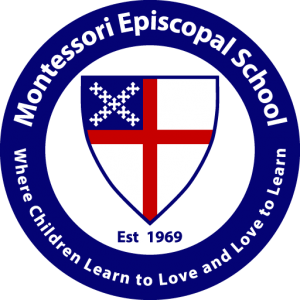
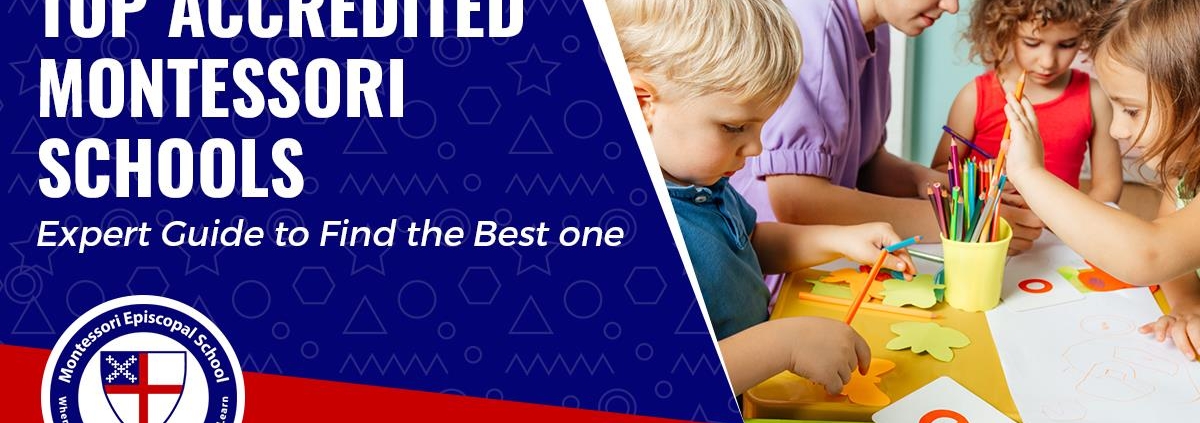

Leave a Reply
Want to join the discussion?Feel free to contribute!